Health Visitors (0 to 19 service)
Pregnancy and the first 5 years of life are one of the most important stages in life. This is when the foundations of future health and wellbeing are laid down.
The Healthy Child Programme is delivered and supported by 0 to 19 teams. It is led by Health Visitors for babies and pre schoolers. Health Visitors are nurses or midwives who have had extra training to support families with children aged 0 to 5 years. The team also includes other support staff. What is available for children aged 5 to 19 years old will be different depending on where you live in West Yorkshire.
If you have concerns you can speak to a member of the 0 to 19 team.
Health visitors give advice on healthy lifestyles and preventing illness. They can make referrals to other health professionals if needed for example, hearing or vision concerns.
Health visitors can provide advice on:
- Breast feeding, formula feeding, weaning and healthy eating
- Exercise, hygiene and safety
- Your child’s growth and development
- Emotional health and wellbeing, including postnatal depression
- Safety in the home
- Stopping smoking
- Contraception and sexual health
- Sleep and behaviour management (including temper tantrums!)
- Toilet training
- Minor illnesses
- Immunisations
The new Children’s Health Services App HDFT has helpful advice including, maternal mental health, infant feeding, child development, 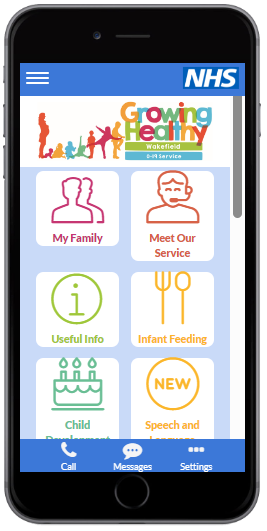 immunisations, speech and language, SEND, diet and activity tracker, recipe demonstrations, local support and activities. It’s free to download and available for both Android and Apple devices.
immunisations, speech and language, SEND, diet and activity tracker, recipe demonstrations, local support and activities. It’s free to download and available for both Android and Apple devices.
What can I expect from my 0 to 19 team?
There are key times when you can expect to have contact from the 0 to 19 team. Every family is offered:
Health Visitors work with midwives and aim to visit you after the 28th week of pregnancy. This will give you a chance to discuss your pregnancy, your health and wellbeing. You can discuss your ideas and plans for your baby. If you have a partner they can be involved too.
Health Visitors will introduce to you the Healthy Child Programme and tell you about your local services and Family Centres (Family Hubs).
Health Visitors can give you information about how you can keep you and your baby safe and well. This includes information about diet, vitamin supplements, smoking cessation, maternal mental health, and baby’s sleeping position. They will also discuss the benefits of breastfeeding, helping you prepare and have an informed choice about feeding your baby.
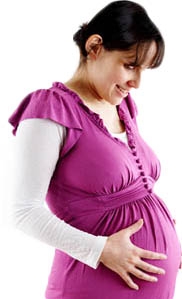
Health Visitors work with midwives and aim to visit you after the 28th week of pregnancy. This will give you a chance to discuss your pregnancy, your health and wellbeing. You can discuss your ideas and plans for your baby. If you have a partner they can be involved too.
Health Visitors will introduce to you the Healthy Child Programme and tell you about your local services and Family Centres (Family Hubs).
Health Visitors can give you information about how you can keep you and your baby safe and well. This includes information about diet, vitamin supplements, smoking cessation, maternal mental health, and baby’s sleeping position. They will also discuss the benefits of breastfeeding, helping you prepare and have an informed choice about feeding your baby.
Around 14 days after your baby's birth, your Health Visitor will arrange a face to face visit usually in your own home. During this visit, your Health Visitor can help support you with breastfeeding and safe formula feeding. They offer guidance on the early days with your baby such as sleep and safety.
Your Health Visitor will discuss ways to help strengthen and support your close and loving relationship with your baby. This may include skin to skin contact to promote closeness and enjoying playing, talking and singing activities with your baby.
Your Health Visitor will check your baby has had a hearing and newborn bloodspot screen and is growing and developing. They will also ask about your own health and wellbeing.
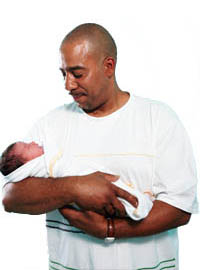
Around 14 days after your baby's birth, your Health Visitor will arrange a face to face visit usually in your own home. During this visit, your Health Visitor can help support you with breastfeeding and safe formula feeding. They offer guidance on the early days with your baby such as sleep and safety.
Your Health Visitor will discuss ways to help strengthen and support your close and loving relationship with your baby. This may include skin to skin contact to promote closeness and enjoying playing, talking and singing activities with your baby.
Your Health Visitor will check your baby has had a hearing and newborn bloodspot screen and is growing and developing. They will also ask about your own health and wellbeing.

Your Health Visitor will discuss your baby's feeding, plans for weaning, growth and development. You may want to think about any questions you have before the review and make a note of them.
They will sensitively discuss your emotional health and wellbeing with you. They will be able to organise extra support for you if you need it. Best Beginnings has several videos relating to maternal mental health.
Following the birth of a baby some women can experience feeling low and emotional. This can occur between 4 to 12 days after childbirth. It is often mild and perfectly normal.
Postnatal depression symptoms can occur within the first year of having had your baby. It affects between 1 and 4 in every 10 women. Symptoms include low mood, feeling emotional and tearful, anxious, and loss of enjoyment in activities that you previously enjoyed.
If you feel you have symptoms of postnatal depression contact your Health Visitor or GP.
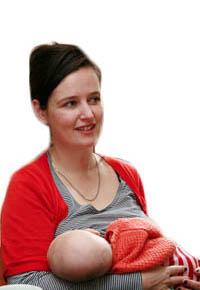
Your Health Visitor will discuss your baby's feeding, plans for weaning, growth and development. You may want to think about any questions you have before the review and make a note of them.
They will sensitively discuss your emotional health and wellbeing with you. They will be able to organise extra support for you if you need it. Best Beginnings has several videos relating to maternal mental health.
Following the birth of a baby some women can experience feeling low and emotional. This can occur between 4 to 12 days after childbirth. It is often mild and perfectly normal.
Postnatal depression symptoms can occur within the first year of having had your baby. It affects between 1 and 4 in every 10 women. Symptoms include low mood, feeling emotional and tearful, anxious, and loss of enjoyment in activities that you previously enjoyed.
If you feel you have symptoms of postnatal depression contact your Health Visitor or GP.

When your baby is between 9 and 12 months old, the 0 to 19 team will discuss their physical, emotional and social development. An 'Ages and Stages' questionnaire will be provided to help you and your Health Visitor understand how your baby is developing. This is an important time to review your baby's development.
Your health visiting team will check your child's growth. They will offer practical support with regards to healthy eating, healthy sleep practices, dental health, immunisations, play and communication activities.
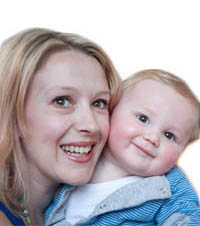
When your baby is between 9 and 12 months old, the 0 to 19 team will discuss their physical, emotional and social development. An 'Ages and Stages' questionnaire will be provided to help you and your Health Visitor understand how your baby is developing. This is an important time to review your baby's development.
Your health visiting team will check your child's growth. They will offer practical support with regards to healthy eating, healthy sleep practices, dental health, immunisations, play and communication activities.

When your child is between 2 years and 2.5 years, your 0 to 19 team will contact you to discuss their physical, emotional and social development. An 'Ages and Stages' questionnaire will be provided to help you and your health visitor understand how your child is developing. The review may be undertaken jointly with health and education, if needed.
Your child's growth and immunisations will also be reviewed. The team can talk through any concerns you have about your child's health and wellbeing.
The 0 to 19 team can give information on healthy eating, including portion size and mealtime routines. They can also give guidance on behaviour, physical activity and toilet training. They can give information on speech development, healthy teeth, joining groups and social activities for your child.
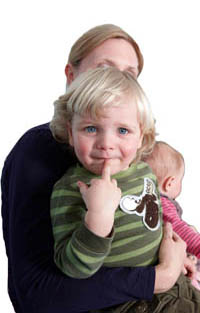
When your child is between 2 years and 2.5 years, your 0 to 19 team will contact you to discuss their physical, emotional and social development. An 'Ages and Stages' questionnaire will be provided to help you and your health visitor understand how your child is developing. The review may be undertaken jointly with health and education, if needed.
Your child's growth and immunisations will also be reviewed. The team can talk through any concerns you have about your child's health and wellbeing.
The 0 to 19 team can give information on healthy eating, including portion size and mealtime routines. They can also give guidance on behaviour, physical activity and toilet training. They can give information on speech development, healthy teeth, joining groups and social activities for your child.

Contact your local Health Visiting Team:
Bradford Health Visitors or call - 01274 221223
Wakefield Health Visitors or call - 0300 373 0944 (local rate number)
Craven Health Visitors or call - 0300 303 0916 (local rate number)
Leeds Health Visitors or call - 0113 843 5683
Calderdale Health Visitors or call - 030 0304 5555 (local rate number)
Kirklees Health Visitors or call - 030 0304 5555 (local rate number)
Contact your local Health Visiting Team:
Bradford Health Visitors or call - 01274 221223
Wakefield Health Visitors or call - 0300 373 0944 (local rate number)
Craven Health Visitors or call - 0300 303 0916 (local rate number)
Leeds Health Visitors or call - 0113 843 5683
Calderdale Health Visitors or call - 030 0304 5555 (local rate number)
Kirklees Health Visitors or call - 030 0304 5555 (local rate number)
This guidance has been reviewed and adapted by healthcare professionals across West Yorkshire with consent from the Hampshire development groups.



